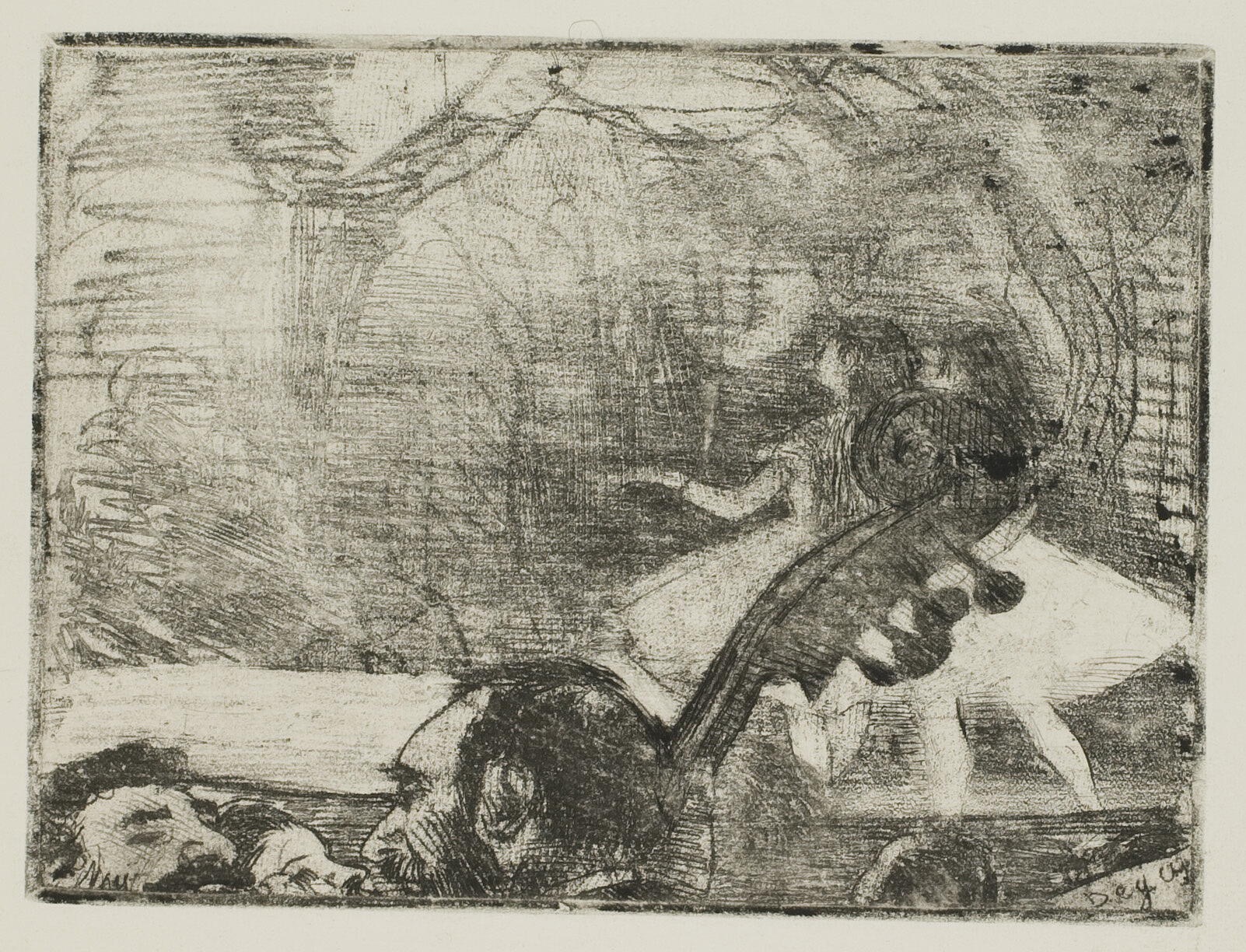ExitStageLeft

Edgar Degas: On Stage I (1876)
"All the world’s a stage,
And all the men and women merely players;
They have their exits and their entrances;
And one man in his time plays many parts,
His acts being seven ages."
—William Shakespeare
(from As You Like It, spoken by Jaques)
" … one final curtain call for this production that never actually was."
Contrary to popular misconception, all the world never was a stage, and all the men and women were always much more than "merely players." Yes, they might have their exits and entrances, but they do much more than just play parts in several acts. That's all analogies, and the one thing one must understand about analogies should always be that they do not describe actual anything. The fact that Shakespeare employed this analogy means precisely that all the world is not now, nor was it ever a stage. To think otherwise violates the first rule of analogy, which insists that they never be taken literally. We see the terrible result of mistaking analogy for description played out in the world's great religions, each of which seems to possess a widely misinterpreted guidebook. While it's undoubtedly true that misinterpreting makes miracles much easier to manifest, they also materially mislead. Misinterpreting brings glorious suggestions into the realm of misleading definitions where an analogous savior somehow manages to feed a multitude with a single small can of tuna.
How much richer our lives might become if we could steadfastly refuse to take anything literally, anything at its unavoidably misleading face value. Ancient cultures, which, due to the simple fact that they left few footprints, are often accused of living analogous lives, recognizing signs, and heeding nature's hints, might serve as useful examples of this practice. They could smell their future coming and alter their course accordingly. The hunters and gatherers sensed subtle cues and had no polls to guide their choices. At the same time, their modern counterparts insist that they have access to better information, primarily gained by projection and literal interpretation, where we act as if this world really were a stage and ourselves merely actors. We often seem poised, waiting for stage direction that's not coming, if only because we were never actually on a stage, and almost none of us were actually actors, either. How sad and disappointing to characterize the indescribable richness of our lives in such a modest manner. We popularly demean ourselves for fun and profit.
What about science? Wouldn't living an analogous life shove us back into the Dark Ages? Probably not, if only because science thrives—utterly depends—upon the agile use of metaphor. In economics, for instance, there never was an Invisible Hand. No, economies were characterized as operating "as if" guided by an invisible hand. Pure misinterpretation left us depending upon some non-existent sleight-of-hand solutions, waiting for a savior never scheduled to arrive. Even physics floats upon the deft use of analogy and metaphor. Would it surprise you to hear that there aren't really Black Holes out there? The term was adopted to describe what might have otherwise been indescribable, a placeholder for a much more complex presence than any opaque absence might represent. We also describe our bodies through analogy, each a weak descriptor if interpreted more literally than intended, by which I mean 'whenever interpreted literally.'
One key to living involves holding one's descriptions loosely to gain facility with the language without taking any of it too awfully seriously. We must understand just how fragile our understandings always were and revel, if possible, in the inexactness of even our best characterizations. As a writer, I remain continually aware of our language's utter inadequacy and the necessity of constructing curves out of material that only comes in relatively straight lines. We see this world more as we are rather than as it is, and that seemingly goes at least double for others. We do not see a tree before us but an analogy of a tree multiplied by at least the number of observers. We do not see anything since seeing never was a collective capability. I can see, but only rarely through the fog of my convictions. Both seeing and fog in this example amount to analogies, meaning both more and different depending on context and positioning. Neither of us could ever see the same tree or even a poem as lovely, either.
The calendar, which also serves as an approximate measure, added an extra day to this Summer. Usually, the twenty-first would hold the Autumnal Equinox, but this year, the twenty-second holds those reins. I'm preparing to ExitStageLeft this Honing Series even though I'm not really on a stage, or literally an actor, or actually expecting some disembodied somebody to direct me toward an imaginary exit. After a quarter together spinning Honing Stories, I feel my knife-like edge. I feel as though I could slice tomatoes. This curtain will fall tomorrow, and I'll attempt one final curtain call for this production that never actually was. Thank you for so deftly imagining these analogies with me.
©2023 by David A. Schmaltz - all rights reserved


